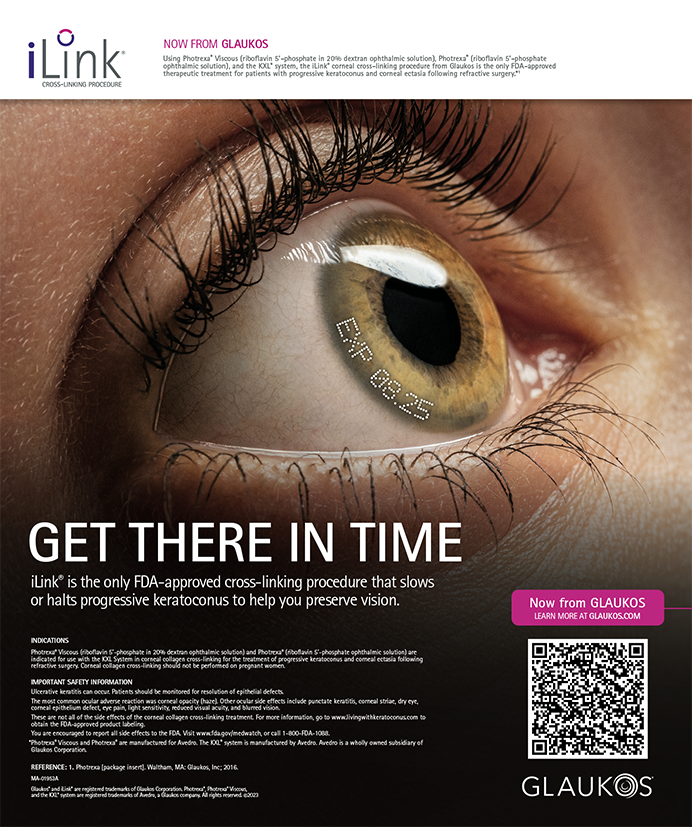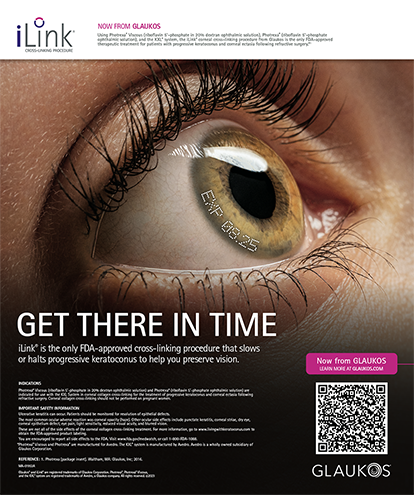Recently, SM² Consulting (Pleasanton, CA) conducted an anonymous survey of 42 of the nation's top laser vision correction practices with regard to telephone consultation quality.1 This in-depth study evaluated the performance of the refractive surgery phone counselor, from knowledge base to salesmanship. On a 100-point scale, the national average was 42.2, with a range from 18 to 95. Our Wang Vision Institute staff in Nashville, Tennessee, scored first place (95).
All staff members–administrative, marketing, and clinical–play a crucial role in the success of a premium LASIK practice. They need consistent training, because the field of refractive surgery is rapidly changing with new technologies and standards in care. Here lies the challenge: how can we keep our staff abreast of the surgeon's current knowledge base in the face of such rapid technological and informational change?
DIFFERENTIATE YOUR PRACTICE
Answering Consumers' Questions Correctly
Shareef Mahdavi, President and Founder of SM², presented the results of the national survey study2 at the Aspen Invitational Refractive Symposium 2006 and mentioned that the Wang Vision Institute scored the highest in the country. At the close of the presentation, Stephen Slade, MD, of Houston joked that the reason that my practice did so well was because "Ming answers his own phones." Although I do not, there is an important point here. We owners/managers/surgeons of a refractive surgery business should have this goal: we need to train our staff so well that, when they represent the business and interact with patients, it should be as good as if we did it ourselves. I have trained my staff to respond as though it were I taking each call myself. My staff now answers calls with quality phone counselling skills that get patients through our door. In addition, after a patient visits our practice, every step in his care is an opportunity to differentiate ourselves. The staff needs to be as effective as the surgeon in the quality of care and in communicating these differentiating factors. Because surgeons do not have the luxury of time to answer phones or to perform the entire clinical workup, how can their staff follow the ophthalmologist's rapidly changing knowledge base in a real-time fashion? The answer to this question is of paramount importance in the survival of a premium LASIK practice.
How We Do It
I believe that my staff members and I have found an effective solution to keeping them informed through structured and regularly scheduled staff in-services. Here is how we do it.Identifying patient's questions and the surgeon's knowledge: I make myself accessible via e-mail to all prospective patients and respond to 10 to 20 e-mail inquiries each day. For an example of an e-mail response to a prospective patient's question, see An Example of a Prospective Patient's E-Mailed Question and Dr. Wang's Response.
Monthly home-study material: I print the e-mailed inquiries I receive and my responses and give them to our optometrist, Helen Boerman, who compiles them into a review packet that she distributes to the staff.
Monthly staff examination: We test the staff's overall knowledge of refractive surgery on a monthly basis via a written examination, and Dr. Boerman helps the staff improve in any weak areas.
Additionally, those staff members who represent the practice in phone consultations or in visits to comanaging doctors' offices are educated more intensively. Dr. Boerman meets with and tests them weekly. In addition, she sets up practicals–mock phone calls and patient encounters where they demonstrate a mastery of the material.
Successes and Pitfalls
My staff did not welcome studying at home for written examinations, so I started rewarding the three highest scorers with paid time off. When the same people won repeatedly, however, the others stopped trying. We then started recording their examination scores in their personal files for their annual review. In addition, our managerial team selects employees of the month based on their job performance and knowledge, thus adding another element of motivation.
CONCLUSION
Consistent staff education is of paramount importance for the survival of the premium LASIK practice. Two powerful separation points between regional market leaders are quality of care and effective communication of differentiating factors to prospective patients. Three years into this system, our staff displays greater confidence and cordiality, as they are sufficiently educated to appropriately respond to a host of issues they face during interactions with patients. Their quality of care raises the bar for our practice in delivering superior clinical care.
We have a motivated staff and, more importantly, a system in place for structured and regular continuing medical education. I would like to thank the entire staff at Wang Vision Institute, particularly Dr. Boerman for her help with staff education and with this article. I would also like to recognize Ms. Suzanne Gordon for setting the national standard of excellence in refractive phone consultation.
Ming Wang, MD, PhD, is Clinical Associate Professor of Ophthalmology at the University of Tennessee, Attending Surgeon at Saint Thomas Hospital, and Director of the Wang Vision Institute in Nashville, Tennessee. Dr. Wang may be reached at (615) 321-8881; drwang@wangvisioninstitute.com; www.wangvisioninstitute.com.


